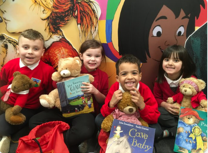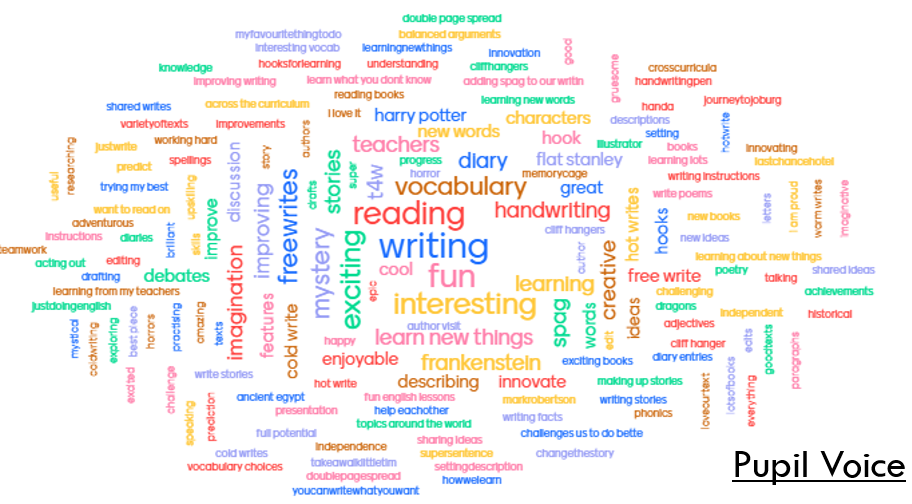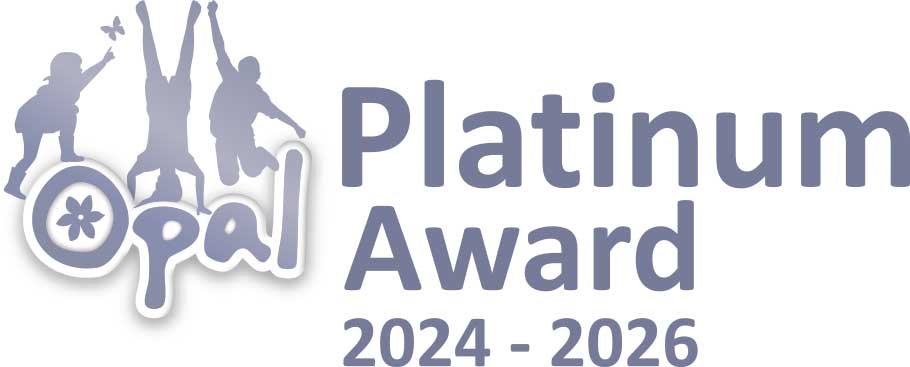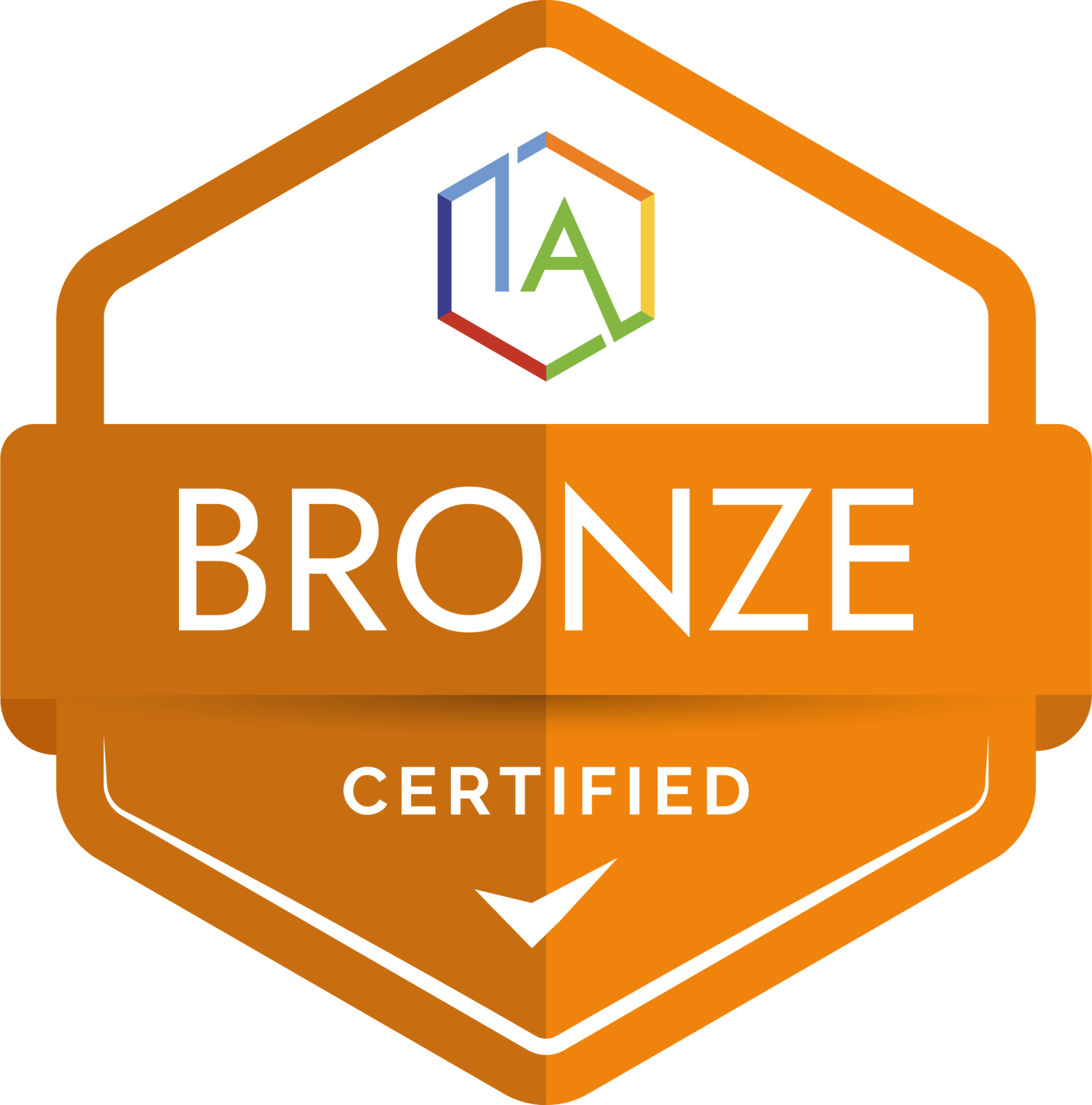English
English sits at the heart of our curriculum, it is through language, story and text that children learn to form concepts, connect ideas and express themselves.
Through literacy, in all its forms, children learn to both make sense of the world and shape their place within it.
At Joseph Cash, we believe in the power of words to ignite imaginations and open doors to endless possibilities. Our primary school English curriculum is designed to foster a lifelong love for reading and writing and empowers our students with strong literacy skills that will serve them well in all aspects of life. 
At Joseph Cash, we understand the transformative power of words. That's why our English curriculum is dedicated to nurturing both reading and writing skills, empowering our students to become confident communicators and creative thinkers.
Across both writing and reading, we place a heavy emphasis on developing a child's vocabulary. Our school is situated in a culturally rich area and serves a 'global majority.' At Joseph Cash over 30 different languages are spoken and 70% of children speak English as an additional language. As a result of this our primary aim is to ensure that children's understanding of language and use of vocabulary is expanded, giving children the language they need to understand sophisticated texts and express themselves in a wide range of contexts.
There are many elements to our English curriculum and our curriculum intent places great emphasis on ensuring pupils have a wide range of hands on and practical experiences that extends pupils knowledge and understanding of the world. By broadening experiences, focusing on 'Oracy' and providing high quality texts and 'hooks' for learning, we are sure our children will develop a love for learning, way beyond their primary years.
| Reading at JCP | Phonics at JCP |
Reading and Writing
Our Writing curriculum enables children to express themselves creatively and imaginatively and in all year groups we teach writing through high-quality texts ranging from picture books to Shakespeare and including immersive real-life experiences, such as author visits and school trips.
We believe that every child has a story to tell, and we're here to help them find their voice. Through shared and guided writing activities, creative prompts, and peer feedback sessions, we inspire our students to unleash their imaginations and express themselves confidently on the page. Whether it's crafting a short story, composing a persuasive speech, or creating a poem, we celebrate the unique voices and perspectives of each child.

Fostering a Love for Literature
Through our English Curriculum, students explore a rich tapestry of literature from around the world. From classic tales to contemporary novels, we expose our students to diverse genres, authors, and cultures, fostering a love for reading and writing that extends beyond the classroom. We ensure that the children have a clear purpose for writing and provide opportunities outside of the English lesson to spark their imagination. We invite visitors in to inspire the children with their writing, from real life quidditch matches to building a Woolly Mammoth in our forest school area, the children are immersed into these experiences.

The real life Quidditch match was super fun to help us with our fantastic writing! Sekyiba
What does Writing look like at Joseph Cash?
From Spring Term in Nursery through to Key Stage One, children also participate in the Read, Write Inc phonics programme. This is taught in small focused groups which progresses through the programme using its resources and linked texts.
In addition, Early Years and Key Stage One use 'Talk 4 Writing' which explores oral retelling and enables children to develop their vocabulary and structure for writing. Children are encouraged to 'cold write' on a particular skill/text and lessons are carefully planned to enable gaps in learning to be addressed through the unit. Children have the opportunity to learn a text by oral rehearsal, equipping them with the skills to write their own stories and non-fiction texts. 
Children explore the features of a particular text and use their knowledge to plan and edit their writing as well as discussing the feelings and actions of particular characters and their own opinions of the text. The unit is completed by children writing a 'Hot task' to celebrate their progress.
In Key Stage Two, children's writing in centred around a key text. Throughout the year, many of the texts are linked to their curriculum theme to ensure they are able to transfer the knowledge and skills across the curriculum. Nonetheless, we do not restrict children in studying other high-quality texts. We expose children to high-quality texts that advance pupils’ knowledge of English language and understanding of literature.
Children have the opportunity to read the whole text and different genres are then taught linked to chapters from a text. This enables the children to have a deeper understanding of characters and text types, as well as exposing them to rich vocabulary. In addition, extracts from a range of other complementary texts are used to enhance the discussions and understanding of literature.
Just set my daughter free, my dear one ... here, accept these gifts, this ransom. Honor the-god who strikes from worlds away-the son of Zeus, Apollo!
Homer: The Iliad
Similar to Key Stage One, children will write a 'cold write' for teachers to understand what the children already know as well as planning lessons to address gaps in learning. Spelling and grammar is taught both within shared and guided writes and stand alone sessions to ensure that children can see the link between SPaG and writing. There are carefully planned SPaG retrieval starters plotted throughout the year to ensure that children are able to remember more and apply it successfully within their writing.
We use Spelling Shed to teach spelling rules. 
Children are excited to write and see writing as purposeful to ensure they have the necessary skills to prepare them for life after Joseph Cash.
Writing across the curriculum
In addition to the writing opportunities as part of the English teaching sequence, there are planned activities within the curriculum theme and Science sessions to encourage children to apply their writing skills within a context that is distance from the point of learning.
This provides stimulating and purposeful opportunities to write, whilst revisiting and revising previous skills and learning.
Handwriting
Handwriting starts in Nursery where children begin to make marks and patterns with resources. In Reception and Year One, letter formation is a focus through daily phonics sessions.
In Years two to six, a different handwriting focus is taught at the beginning of each English lesson for the children to practise and apply to their writing. We use Nelson's Handwriting Scheme to teach handwriting daily.![]()
At Joseph Cash, we celebrate this journey from letter formation to joined up writing by reward the children with a 'Pen License'. When the children reach Year 6, they have the opportunity to choose to write with a pen or a pencil.
What our pupils think ?
















